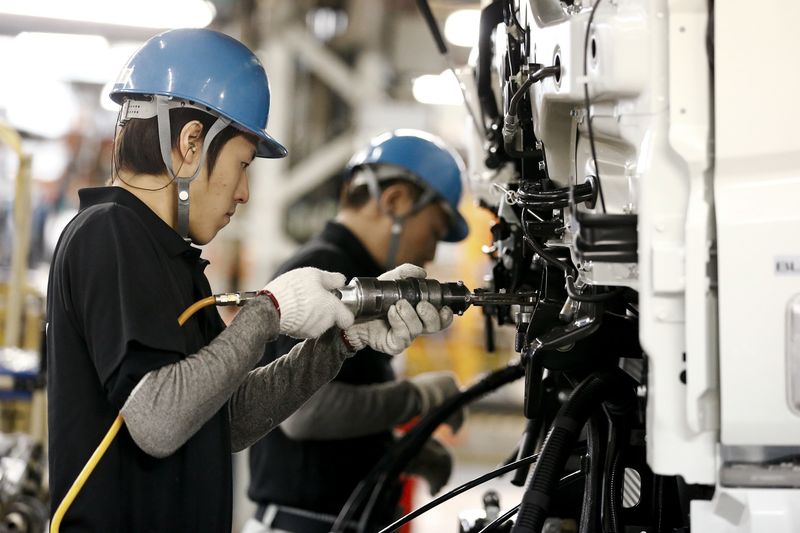TOKYO (Reuters) - Japanese manufacturing activity shrank at a faster pace in December than in the previous month as output slumped, underscoring growing pressure on businesses from sagging demand abroad and at home.
The Jibun Bank Final Japan Manufacturing Purchasing Managers' Index (PMI) slipped to 48.4 on a seasonally adjusted basis, matching a more than three-year low last touched in October.
It was down from a preliminary figure of 48.8 for last month and compared with November's final reading of 48.9.
"Japan's manufacturing sector has ended 2019 where it started, stuck in contraction with little hope of an imminent turnaround," said Joe Hayes, economist at IHS Markit, which compiles the survey.
"The manufacturing economy has endured its worst performance in over three years, with momentum clearly to the downside heading into 2020."
The PMI survey showed output fell to its lowest since March as companies faced unfavourable demand conditions, and weak new exports due to lower sales to China.
Overall new orders and output stayed in contraction for the 12th consecutive month, though the decline in new business slowed for the second straight month.
Japan's industrial output slipped for the second straight month in November, raising the likelihood the economy will contract in the fourth quarter.
The Bank of Japan last month offered a gloomier view on factory output, while keeping intact its assessment that the world's third-largest economy continues to expand moderately as a trend.
The manufacturing PMI index remained below the 50.0 threshold that separates contraction from expansion for an eight month, marking the longest such run since a nine-month stretch to February 2013.
"Survey data highlighted that weak demand remains an industry-wide problem, impacting output volumes and causing firms to cut their prices in hopes of turning the tide," IHS Markit's Hayes added.
